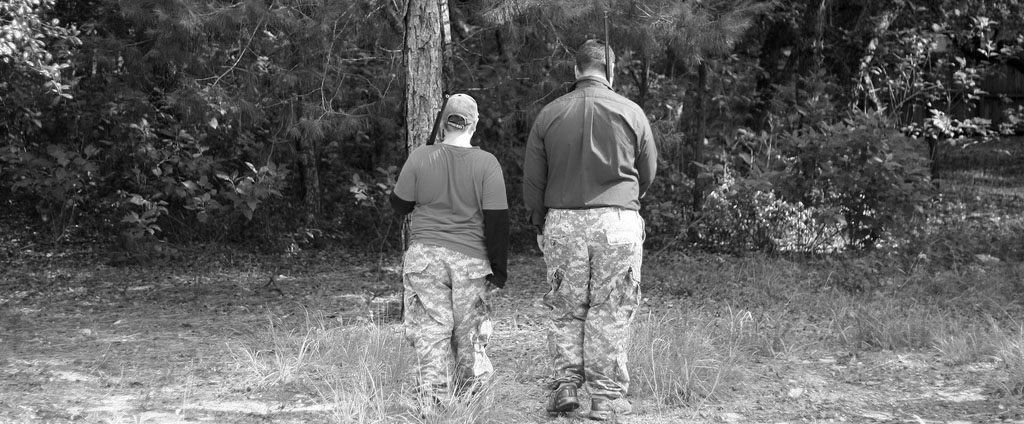There are so many reasons why hunting for deer meat is beneficial not only for the environment but for our well being and health. We have narrowed it down to 27 benefits of harvesting and eating wild venison and have created a really cool infographic to better illustrate the long lasting debate of venison vs beef. This will answer many of those questions many people have, such as is deer meat healthy? Doesn’t it taste gamey? How much does it cost?
Want to share this on your site? Just copy the code below!
1. It Tastes Delicious
Venison can taste absolutely delicious – when prepared and processed correctly! Now we all know that taste is definitely something that is completely subjective. Not everybody is going to like it. But if you are a meat eater and love other red meat, then chances are you will love venison.
Many of the complaints people have of venison is that it can taste ‘gamey’, or that it is too dry or tough. If you have ever eaten deer meat and thought it tasted too gamey or tough there are a few reasons for this. There is a great article on RealTree explaining 12 reasons why venison can taste bad. The main reasons are usually the lack of urgency in field dressing the deer and not allowing the deer to cool immediately, improper hanging and aging, and failure to remove fat, connective tissues, hair and bone properly during skinning and processing.
Just for fun, OutdoorLife.com conducted a blind taste test between 10 people which you can check out in the article The Ultimate Red Meat. Of those 10 people 8 preferred venison and 2 chose beef as the tastiest. The venison was a clear winner in that battle.
2. You Can Save Money
Harvesting and processing your own deer could save you lots of money in the long run when compared to buying store bought meat. Of course you will have the initial costs upfront, such as purchasing a rifle (and possibly rifle scope)/bow, trail camera and other equipment,, accessories and gear, but these are all considered assets. If you take good care of these items they can last you a lifetime. So after the initial upfront costs lets take a look at the costs of a typical rifle hunter in Montana:
[line_list]
- Deer Hunting Licence and Tag – $26
- Rifle Cartridge approx – $30
- Gasoline – $20
[/line_list]
That’s a total cost of $76 for the hunt and kill. Consider taking down an average sized mule deer buck with 80 pounds of edible meat. That works out to be 95 cents per pound.
The current average cost of ground beef in the United States is $4.23 per pound.
That’s a saving of $3.28 per pound, 78% cheaper.
Now of course this is just an example, and there are many factors that can fluctuate here. Every state has different laws and different prices for a licence and tag, you may not always bag a deer (or one of that size) on every hunt, you may opt to have the deer processed and prepared by a butcher, or you may travel interstate in which case the tag would be much more. This is just an example of how much you could save, if you are hunting, skinning, processing, and preparing the deer all on your own. 78%…not bad!
3. Organic & Natural (Yes, Deer Meat is Healthy!)
Wild venison is more natural than most beef, pork and chicken found in supermarkets. Deer are born and bred in the wild and eat only natural food sources, mostly grass and acorns. Because many livestock growers try to get their cattle to a slaughter weight as quickly as possible, they pump them full of chemical enhancements.
Majority of the beef that is sold has been given loads of growth hormones, steroids, and antibiotics in order for it to increase in weight quickly which is totally understandable. Commercial beef is raised for the masses. By giving cattle these chemical enhancements it can cause them to double in weight at almost no cost, producing pounds of extra meat, for us the consumer.
However, many people are becoming more and more health conscious and are moving towards a more organic and natural way of eating. This is where venison is an excellent choice to replace beef. Unlike beef raised by humans in a cattle farm, venison is chemical and hormone free with no additives or antibiotic injections.
4. More Humane Choice
Eating venison is much more ethical than eating beef. Deer have lived a free roaming life, living with the law of nature. They haven’t suffered from confinement, antibiotics, abuse, or neglect and are hunted and killed in their own environment, where the smartest and luckiest animals survive and reproduce. We all know the destiny beef cattle meet. Majority are raised on a cattle farm, filled with chemicals and then slaughtered in packs in a slaughterhouse.
So long as ethical hunting is implemented, with a clean shot, making the kill quick with no suffering, then the choice of deer meat is a clear winner and is a much more humane choice when it comes to ethical eating of animals.
5. Generally Safer to Eat Than Most Meat
Just like all meat, there are always going to be dangers when consuming venison. One health issue with eating venison could be contracting E. Coli if bacteria from organs or anus has spread but this is also a risk taken when eating beef. A study by the CSPI found that of all the meats consumers purchased, chicken and ground beef were the riskiest for causing foodborne illnesses.
The biggest concerns with eating venison are chronic wasting disease (CWD) and lead poisoning. However there is no evidence as yet that CWD can be transmitted to humans (although the research continues). As for lead poisoning, this is a risk, but so long as you are shooting and processing your own deer this can easily be avoided, with correct shot placement minimizing bullet fragmentation, disposing meat close to the wound, and using non-toxic ammunition.
One thing you will not have to worry about with eating deer meat is Creutzfeldt-Jakob disease. This is the human variant of “Mad Cow Disease” which has been tied to eating meat from diseased cows. There has been no similar connection between game meat such as venison and human health.
So long as care is taken with shot placement and the proper processing/butchering then eating meat from a deer is no more dangerous and in some ways much safer than eating commercially raised livestock.
6. Satisfaction
Hunters know that it can be a very satisfying feeling when you know you’ve done it all yourself. From harvesting the deer, to skinning, field dressing, to cooking, serving and eating it all up. Knowing that you are feeding your family or loved ones with the very deer that you harvested yourself can be a very rewarding feeling. Knowing where it has been and that it has been properly handled by yourself is also great for piece of mind. Some hunters may even feel more of a connection with the meal they are eating, knowing that they killed this animal in order to feed their loved ones.
7. Convenience
Ok so hunting for your own meat might not be as convenient as going down to the supermarket and buying a few pounds of beef or whatever. But, what about when you do bag that deer during hunting season. Assume it yields 80 pounds of meat and that is sitting in the freezer or canned ready for eating any time. No need to go to the butcher or supermarket to buy meat for months, even a year.
8. Keeps Us Active & Fit
Deer hunting is a great form of exercise that can involve scouting for game, hiking and climbing to a tree stand and dragging out deer. These are sure to keep you active and fit.
9. Gets Us Outdoors
Hunting for venison gets us out of the big city and into the great outdoors to enjoy what Mother Nature has to offer. Many people find this escape refreshing, relaxing and therapeutic.
10. Helps Control the Deer Population
Hunting deer is an economical, practical, and effective means of controlling free-ranging deer populations and the hunters have taken the place of predators. Without this harvesting control, deer can overpopulate, destroy their natural habitat or adversely impact other species in the environment.
Here’s an example of the problem being faced at Eagle Creek Park in Indianaoplis with the overpopulation of deer.
11. Feeds People in Need
Venison can be donated to food banks. You can donate excessive venison if there’s no room in your freezer and feed less fortunate people in need.
12. Helps Control Blood Cholesterol Levels
Venison has less cholesterol than turkey and chicken and is very low in saturated fats. It can also lower your LDL (low density lipoproteins) which are called the “bad” cholesterol and increase your HDL (high density lipoproteins) which are the “good” cholesterol.
13. Reduces the Risk of Heart Attacks & Strokes
Being high in B vitamins it helps break down protein, carbs and fat for energy and assists with red blood cell formation. Of those B vitamins, it is rich in B12 and B6, which may assist in lowering the build up of homocysteine in the blood therefore reducing the risk of strokes and heart attacks.
14. Helps Regulate Metabolism
Venison is full of vitamin B2 (riboflavin) and B3 (niacin) which help regulate metabolism.
15. Keeps Us Slim
Having virtually no carbs and being lower in fat than beef, deer meat is an excellent source of polyunsaturated fatty acid and has DHA (docosahexaenoic acid). DHA may help reduce triglyceride levels in your blood, which means less fat being transported to fat stores making it easier to keep your body fat down.
16. Alternative for Food Allergies
Some nutritional experts believe venison can help and sometimes reverse chronic conditions like food allergies, sporadic diarrhoea and other digestive disorders.
17. Contains High Level of CLA
CLA (Conjugated Linoleic Acid) is a natural trans fatty acid found in grass-fed animals that decreases body fat storage and increases lean skeletal muscle mass. Well guess what? Venison has loads of it. This also helps you keep slim and healthy.
18. Great for Bodybuilding
Venison is high in protein and is the perfect red meat to build lean muscle. It’s hard to find a meat that’s leaner than venison, and for bodybuilders trying to bulk up but also shred at the same time then eating deer meat may be a great substitute for the usual beef, fish and chicken. Incorporate this lean meat into your diet plan and watch the lean muscle pack on.
19. Keeps Energy Levels High
Venison is extremely rich in iron which keeps our energy levels high, makes us stronger and feel less lethargic.
20. Prevents Anaemia
Being high in iron, venison is good for iron deficiency anaemia prevention. Anaemia is when the level of red blood cells or haemogoblin is lower than it should be which in turn forces the heart to work harder to pump the right amount of blood to give the right amount of oxygen all around the body. Having anaemia can be exhausting and eating food that is rich in iron such as venison is a great way to prevent this.
21. Can Help During Pregnancy
Eating deer meat boosts iron stores and during pregnancy may help get over an iron deficiency given that the venison you are eating is properly handled and cured to eliminate any chance of foodborne illnesses. Anaemia (mentioned above) is very common in menstruating and pregnant women, so ladies if you are pregnant, make sure you boost this iron stores and eat some venison!
22. High in Protein
When comparing venison vs beef in protein it was found that venison contains more protein in almost every case. Lets compare 2 similar cuts of both the meats. 3 ounces of a top round beef steak that has been grilled contains 25.6g of protein. 3 ounces of broiled top round venison steak contains 26.8g of protein.
23. Extremely Low in Fat
Using the same cuts of venison and beef from above, the beef steak contained 3.2g of fat in total and 1.3g of saturated fat. The venison steak contained only 1.6g of fat and of that only 0.9g of saturated fat. This shows that the venison steak contains 50% less fat in total than the beef and 31% less saturated fat. Venison also has less saturated fat than ham, lean roast meat and salmon.
24. Low in Calories
Using the same cuts of venison and beef, the beef contained 138 calories and the venison 129 calories in total. That is 7% less calories than beef.
25. Fat Can Easily Be Removed
Because deer accumulate most of their fat around their organs and in single layers, which is mostly around the muscle and underneath the hide, the fat can easily be removed when processing and butchering the meat. Whitetail deer have even less fat because of their lifestyle and their constant exercising. Beef on the other hand store their fat between the muscle tissues, this is what creates that ‘marbling’ texture, but this also makes beef much higher in fat content.
26. Helps Fulfill DRI’s
DRI (Dietary Reference Intake) is a reference or guide to how much minerals, vitamins and nutrients we should be consuming to maintain a healthy and balanced diet, specific to our age and gender.
According to Livestrong.com 4 ounces of venison provides 68.5% of the daily value for protein, almost 50% of the DRI of iron for men and 31% for women. It also contains 30% of the DRI of vitamin B6 for adults and 80% of the DRI for vitamin B1.
27. It’s A Complete Protein
Venison is considered a complete protein because it contains all 10 of the essential amino acids.
So it’s pretty safe to say that harvesting and eating venison has many benefits. As for the venison vs beef debate it’s clear to see that venison is the winner in many cases including ethical eating, nutrition, and health.
What are your thoughts on eating venison? Drop us a line in the comments.
If you enjoyed this article and infographic please don’t forget to share with your friends on Facebook and spread the good message of harvesting wild game for food.





I can find on fault at all in your statistic presentation.
You have presented a good visual disply with sufficient facts to satisfy any person who has not yet tried venison!
Just wanted to say well done!
Barry
Thanks Barry. Hopefully this will get more people trying out this great meat!
Thanks for the info. Planning to try switching from beef to venison 🙂
Great work! an incredible post for someone looking for a reason to start hunting or eating the meat that a family hunter brings home. Well done!
Thanks Tony. Glad you enjoyed it 🙂
i really lirkr et
Do you have a date for this article?